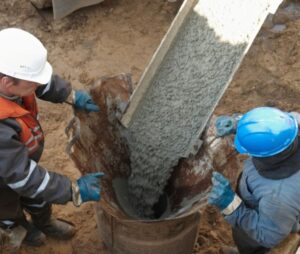New York Insurance Coverage Law Update – September 29 2022 | Rivkin Radler LLP
Court docket Finds That Named Insured “Executed” Contract With More Insured, Triggering Obligation To Defend
Stoncor, a flooring techniques producer, despatched Surfacesys a proposed Grasp Installation Agreement to grow to be an distinctive floor installation contractor. The Settlement necessary that Surfacesys list Stoncor as an insured on its insurance coverage. The Agreement was returned to Stoncor via fax purportedly signed by “Jeffrey Caswell.” In switch, Surfacesys became an accredited Stoncor installer and executed 300 installation jobs, which includes the in-stallation of a kitchen area floor at the Grand Hyatt Hotel in Manhattan. A Grand Hyatt worker slipped and fell on the ground, and he sued both of those Stoncor and Surfacesys. Surfacesys’s insurance policies plan with Peerless Coverage Firm furnished more insured coverage to any individual Surfacesys agreed to insert as an insured “in producing in a contract [or] agreement” that is “executed prior to the [injury].” Peerless would not defend Stoncor as an additional insured for the reason that the “Jeffrey Caswell” signature was not personally affixed by Mr. Caswell. The United States District Courtroom for the Southern District of New York held a demo and observed that the policy requirements ended up glad. The court stressed that Stoncor received a signature-bearing duplicate of the Settlement by way of fax, and Mr. Caswell testified that he could not recall no matter whether he had authorized a person else to indication on his behalf. In addition, Surfacesys discovered the Settlement as the agreement governing its relationship with Stoncor in connection with the Grand Hyatt venture and did not deny the validity of the signature. The courtroom also rejected Peerless’s argument that it had no responsibility to defend Surfacesys for the reason that the plan only prolonged added insured coverage to “ongoing functions,” finding that the allegations of the underlying criticism gave rise to at minimum the likelihood of protection. [Stoncor Grp., Inc. v. Peerless Ins. Co., 2022 U.S. Dist. LEXIS 154184 (S.D.N.Y. Aug. 26, 2022).]
Southern District Finds Insurance company Not Entitled To Discovery As To Obligation To Defend
The Metropolis of New York submitted a protection action in the United States District Court docket for the Southern District of New York, trying to get a declaration that Harleysville Insurance plan Business is obligated to defend the Town in two fundamental personal harm steps. Harleysville sought and the City objected to selected discovery associated to the fundamental actions. The Magistrate Decide assigned to the dispute observed that the difficulty in the scenario was irrespective of whether Harleysville’s responsibility to protect was activated by the allegations in the problems submitted in the fundamental actions, not by the discovery that has been manufactured in all those instances. The Justice of the peace Decide concluded that the discovery is extrinsic evidence that overlaps with the deserves of the fundamental steps, which the courtroom will not take into consideration in determining this declaratory judgment action as to the responsibility to protect. [City of New York v. Harleysville Ins. Co., 2022 U.S. Dist. LEXIS 143039 (S.D.N.Y. Aug. 10, 2022).]
Court Holds That Denial Of No-Fault Assert Based mostly On Misrepresentation Is Issue To 30-Day Denial Rule
Liberty Mutual submitted a no-fault protection action towards the qualified wounded particular person and his professional medical service provider assignees, trying to get a declaration that Liberty Mutual was not obligated to pay no-fault added benefits due to the fact the qualified man or woman made a material misrepresentation as to wherever he lived when making use of for the coverage. One of the assignees moved for summary judgment, contending that it was entitled to payment of its expenditures for health-related treatment mainly because Liberty Mutual did not well timed deny or fork out them inside of 30 days after obtaining evidence of the assignee’s declare, as essential by 11 NYCRR 65-3.8 (a) and (c). The Supreme Court docket, New York County, pointed out that a slim exception exists to the preclusion rule for an premature denial the place the floor for denying the claim is dependent upon a lack of protection, and that there are potent arguments as to why a materials misrepresentation denial should really be treated as based on a deficiency of protection. However, the court concluded that it was certain by Second Section authority keeping that the time limits used to a substance misrepresentation denial. [Liberty Mut. Ins. Co. v. Brutus, 2022 N.Y. Misc. Lexis 4154 (Sup Ct. N.Y. Cnty Aug. 16, 2022).]








